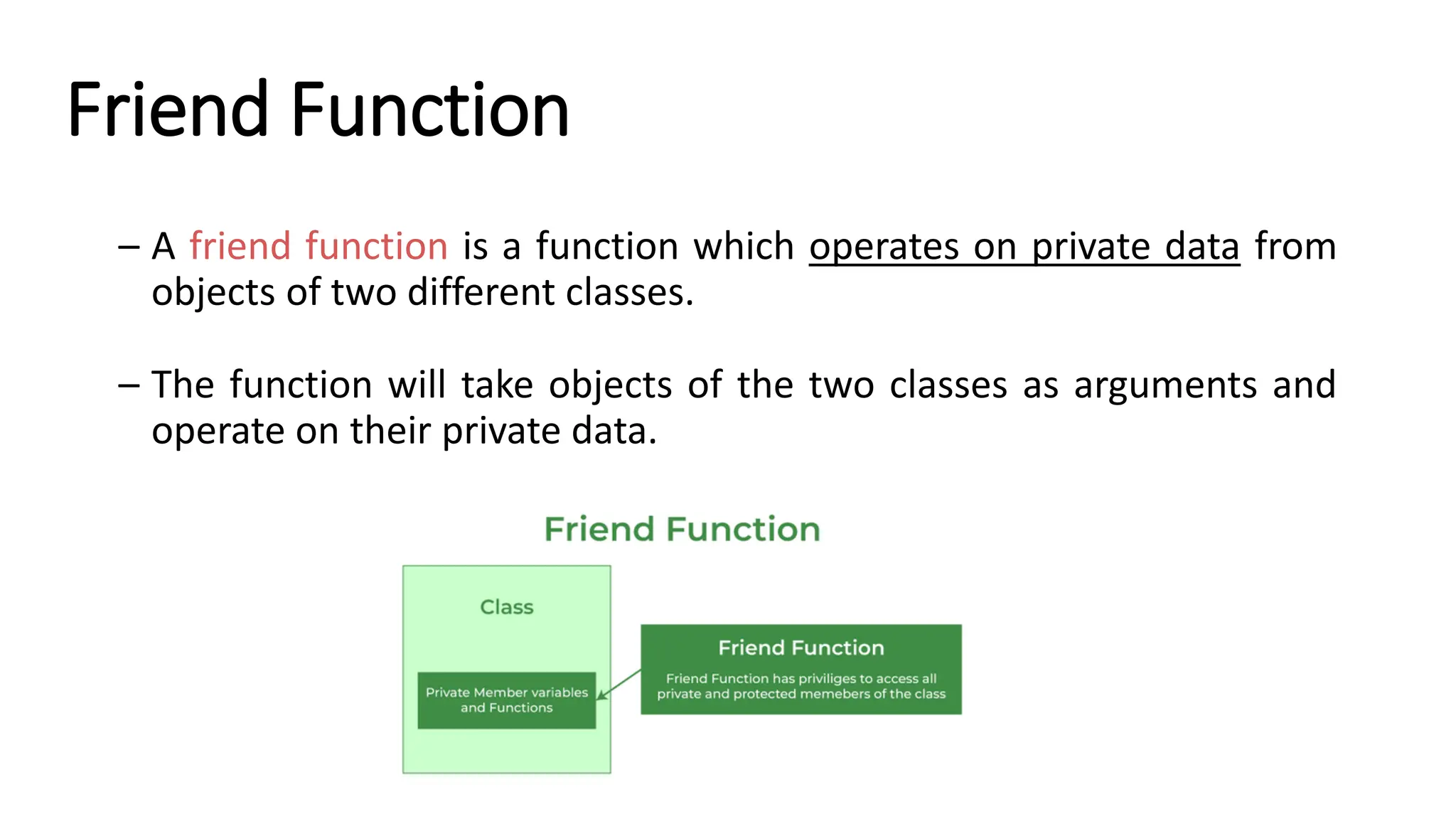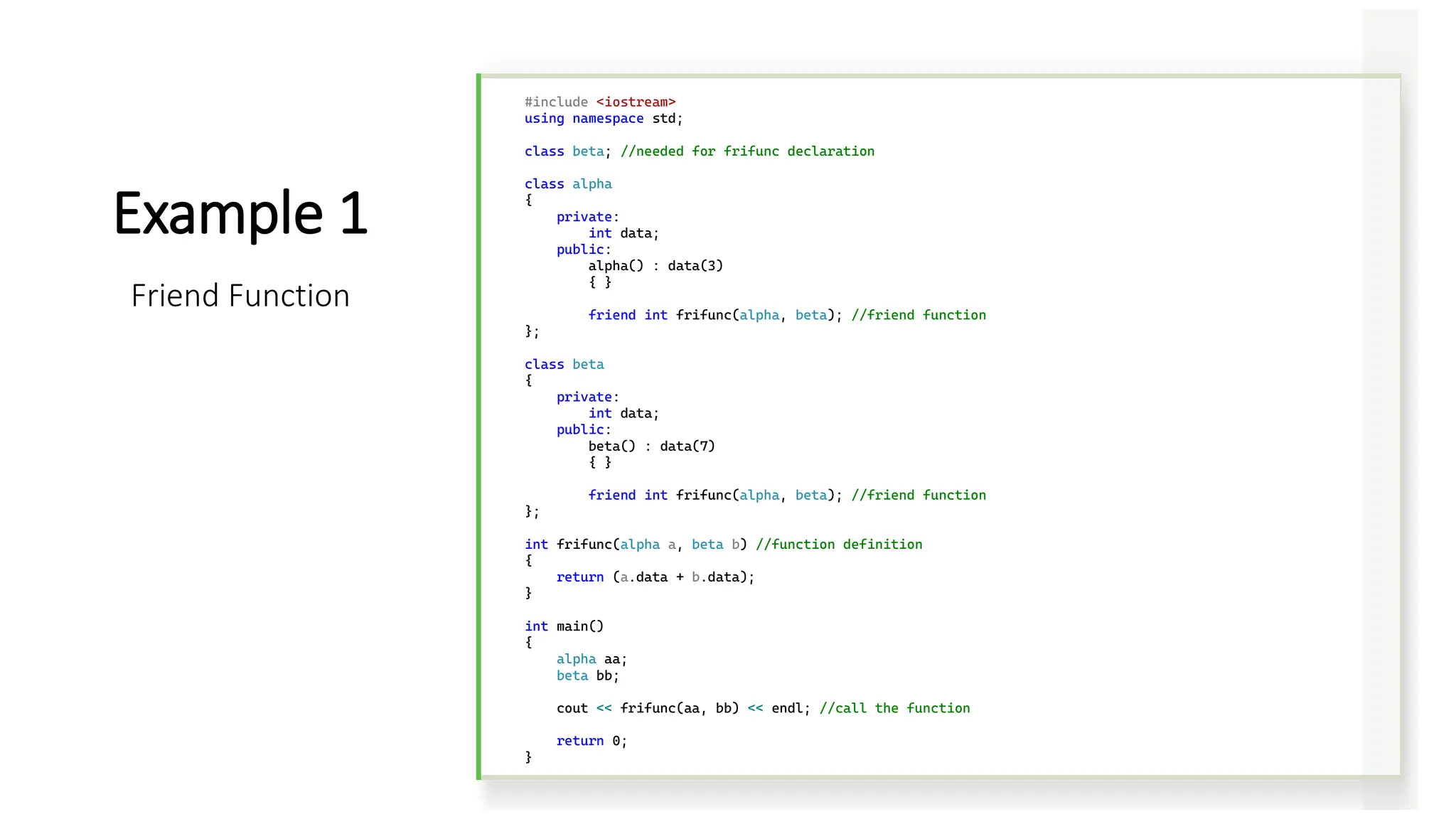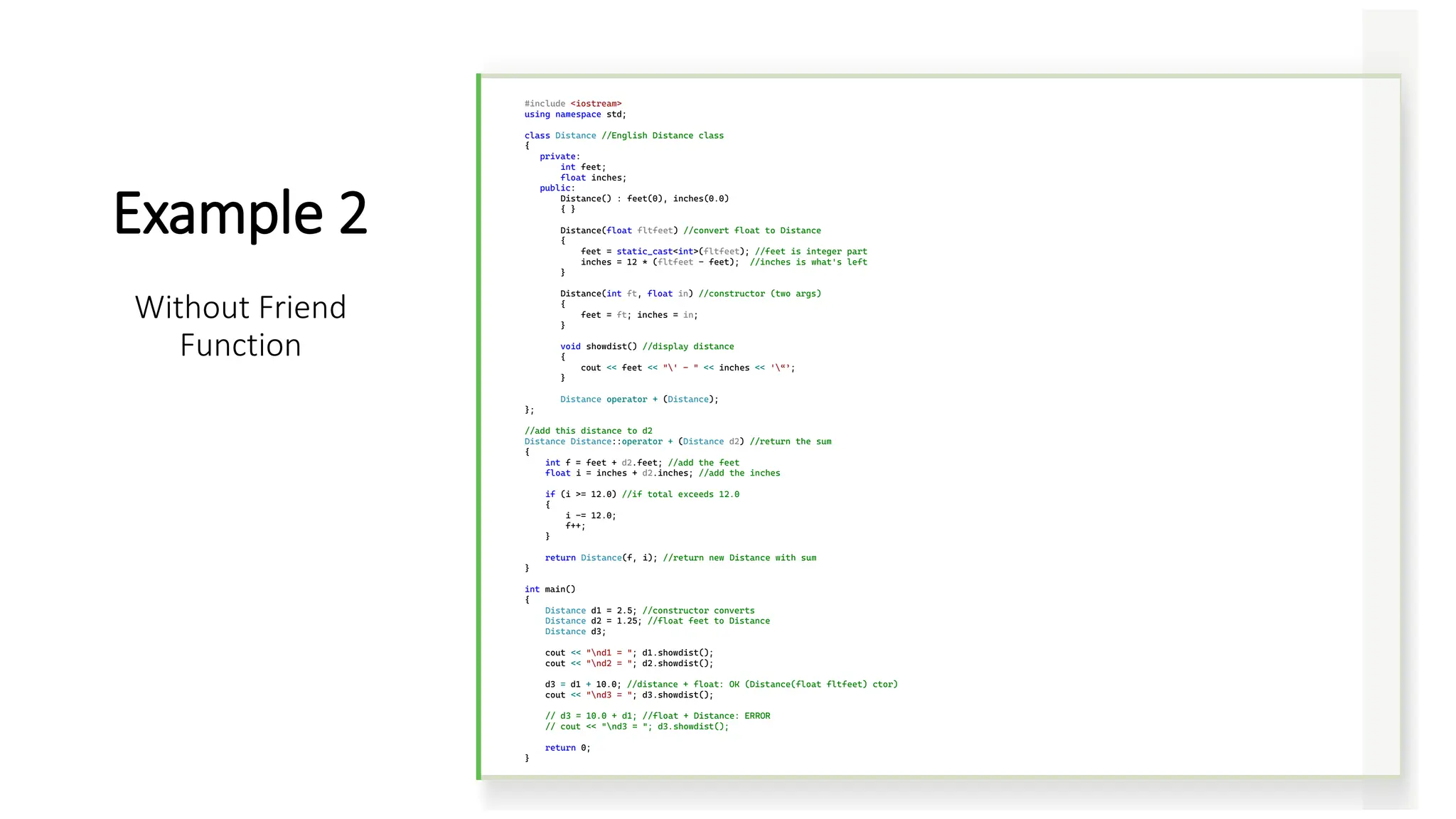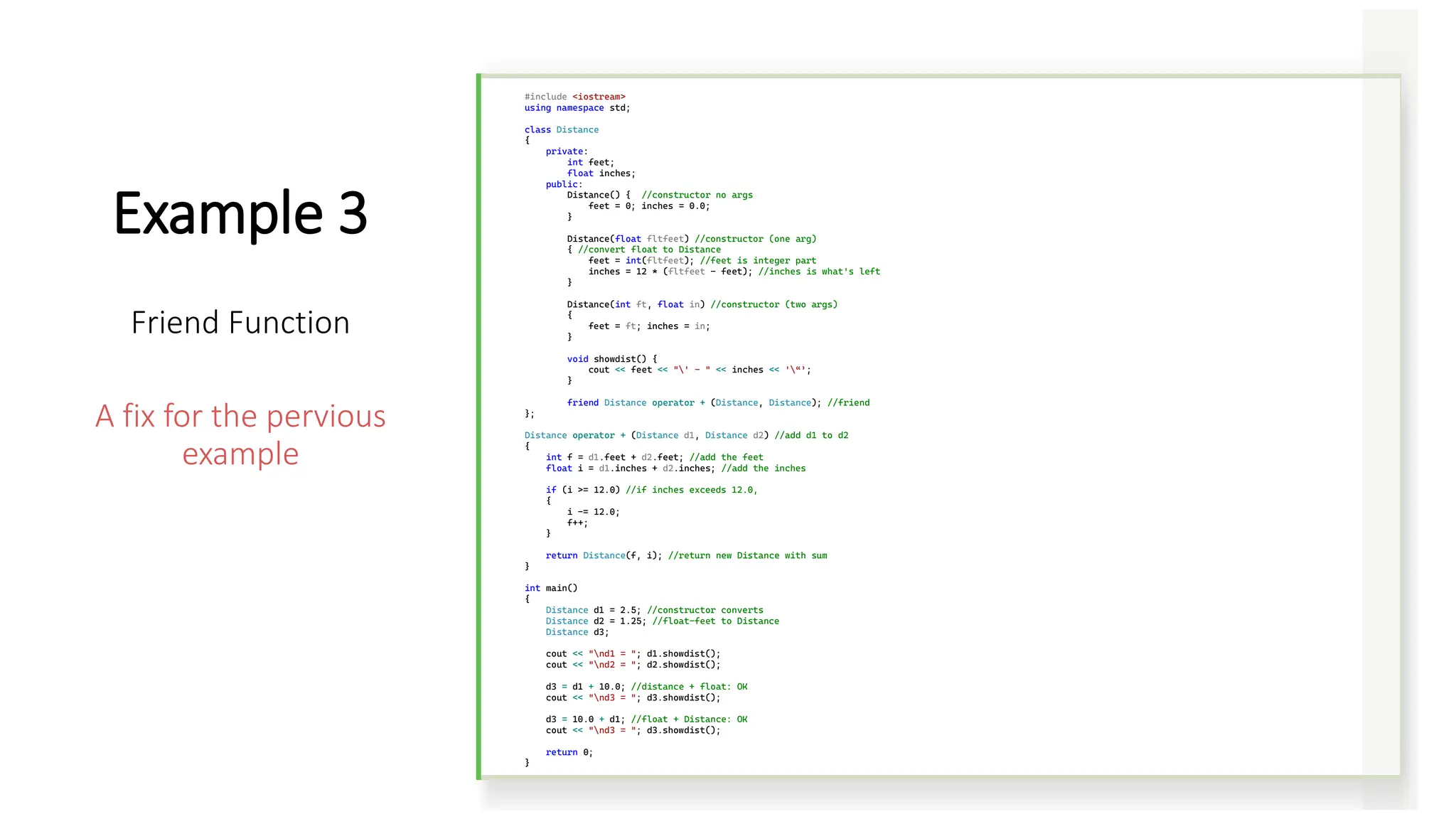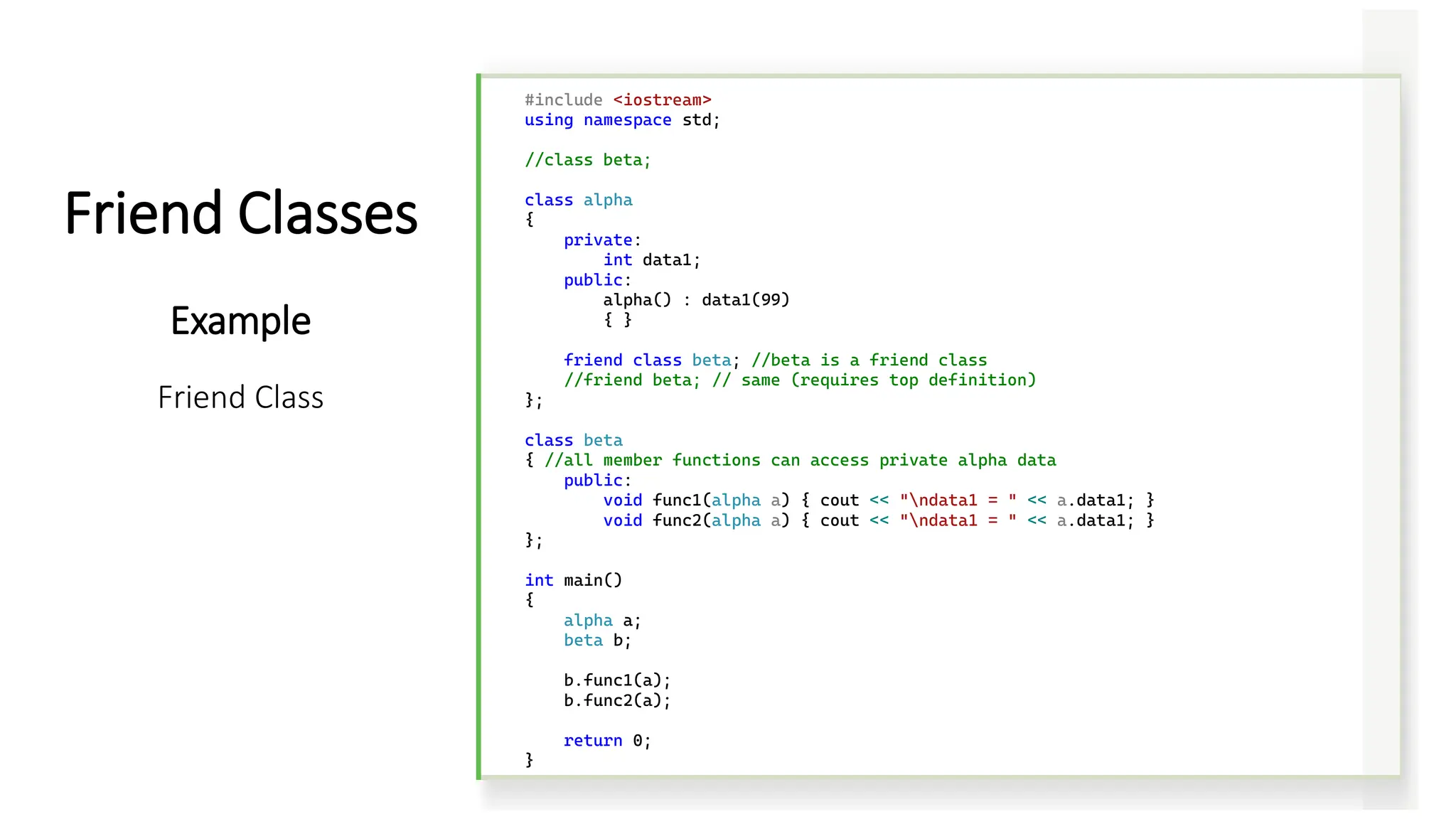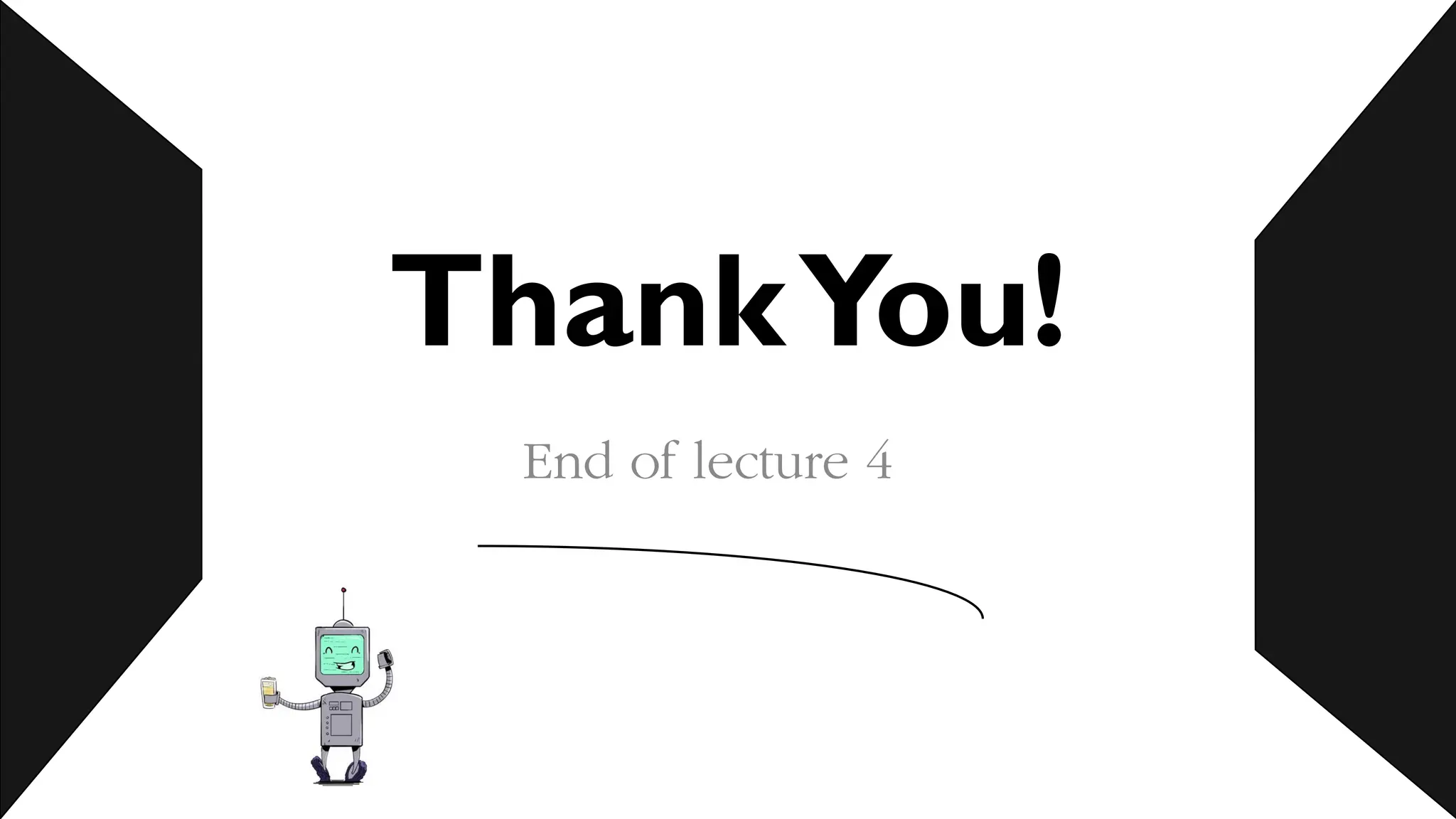The document is a lecture on Object-Oriented Programming using C++, covering various concepts such as classes, pointers, linked lists, virtual functions, abstract classes, friend functions, and operator overloading. It provides code examples and explanations of key features in C++, including dynamic binding, pure virtual functions, and friend classes. Overall, it serves as a comprehensive introduction to object-oriented programming principles and their implementation in C++.
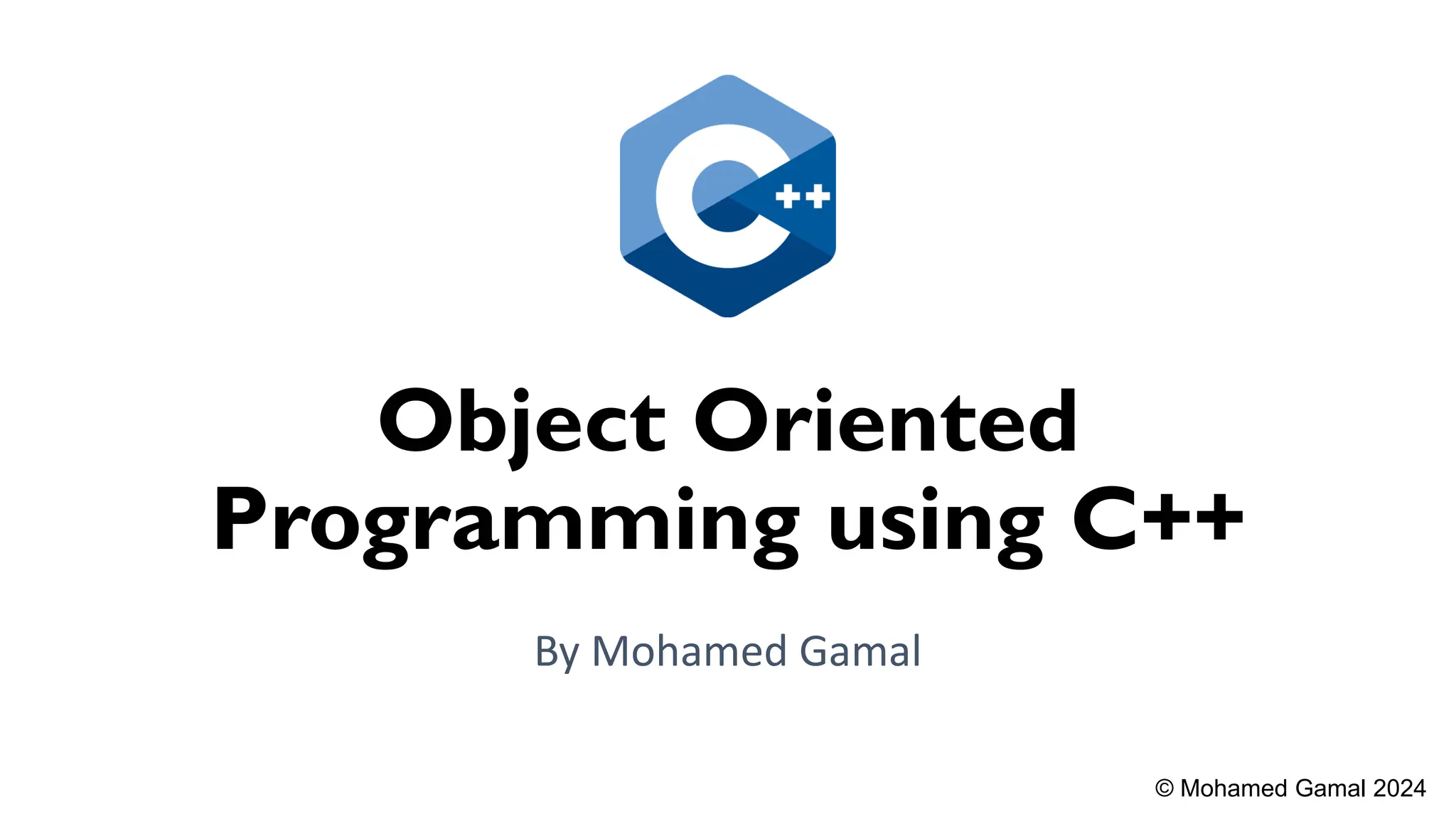
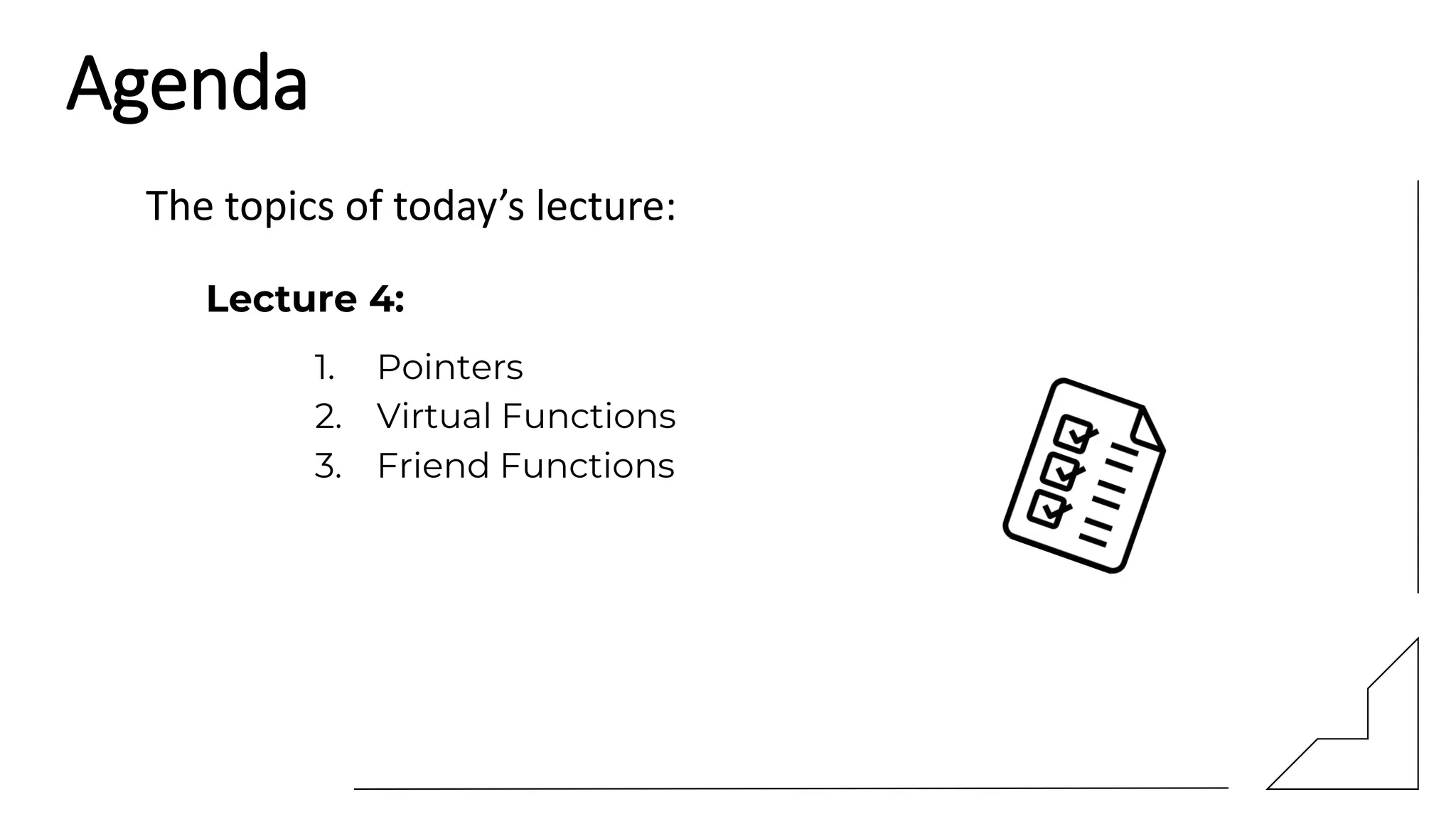

![#include <iostream> #include <cstring> //for strcpy(), etc using namespace std; class String { private: char *str; //pointer to string public: String(char *s) //constructor, one arg { int length = strlen(s); //length of string argument str = new char[length + 1]; //get memory strcpy(str, s); //copy argument to it } ~String() //destructor { cout << "Deleting str.n"; delete[] str; //release memory } void display() //display the String { cout << str << endl; } }; int main() { String s1 = "Who knows nothing doubts nothing."; cout << "s1 = "; //display string s1.display(); return 0; } A String class using new and delete](https://image.slidesharecdn.com/oopusingclanguage-lecture4-240918193530-82221c81/75/Object-Oriented-Programming-OOP-using-C-Lecture-4-4-2048.jpg)
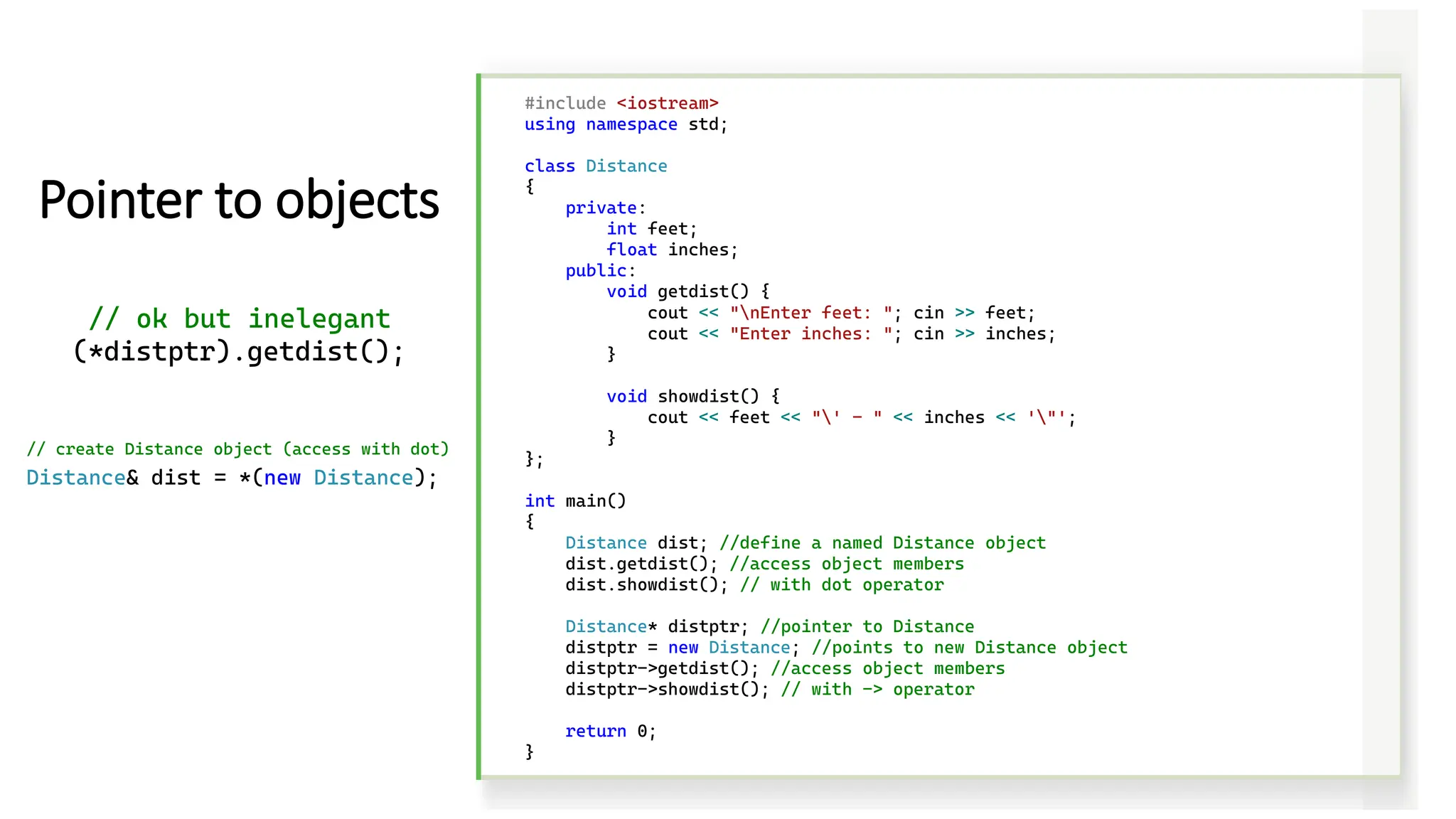
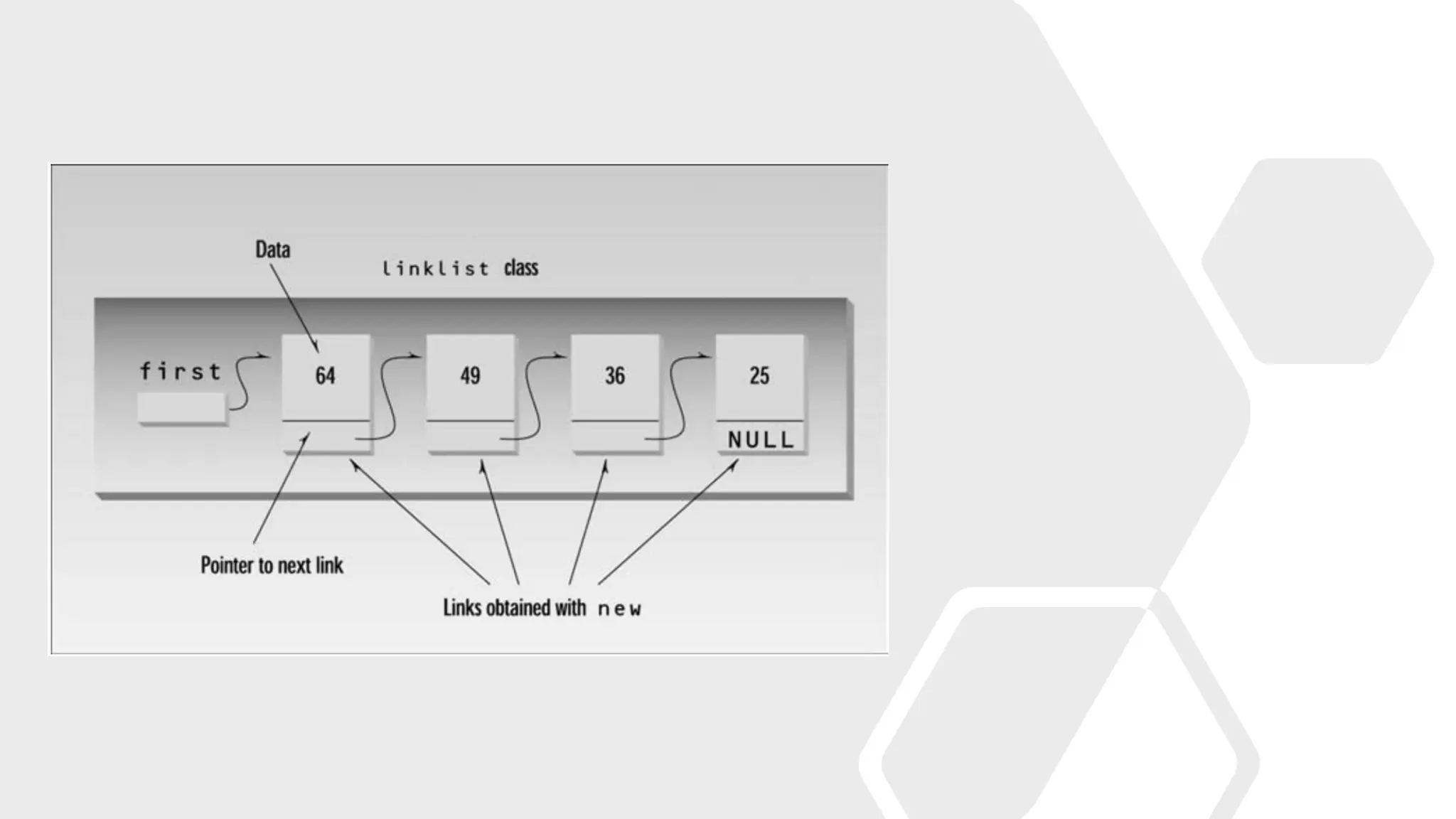
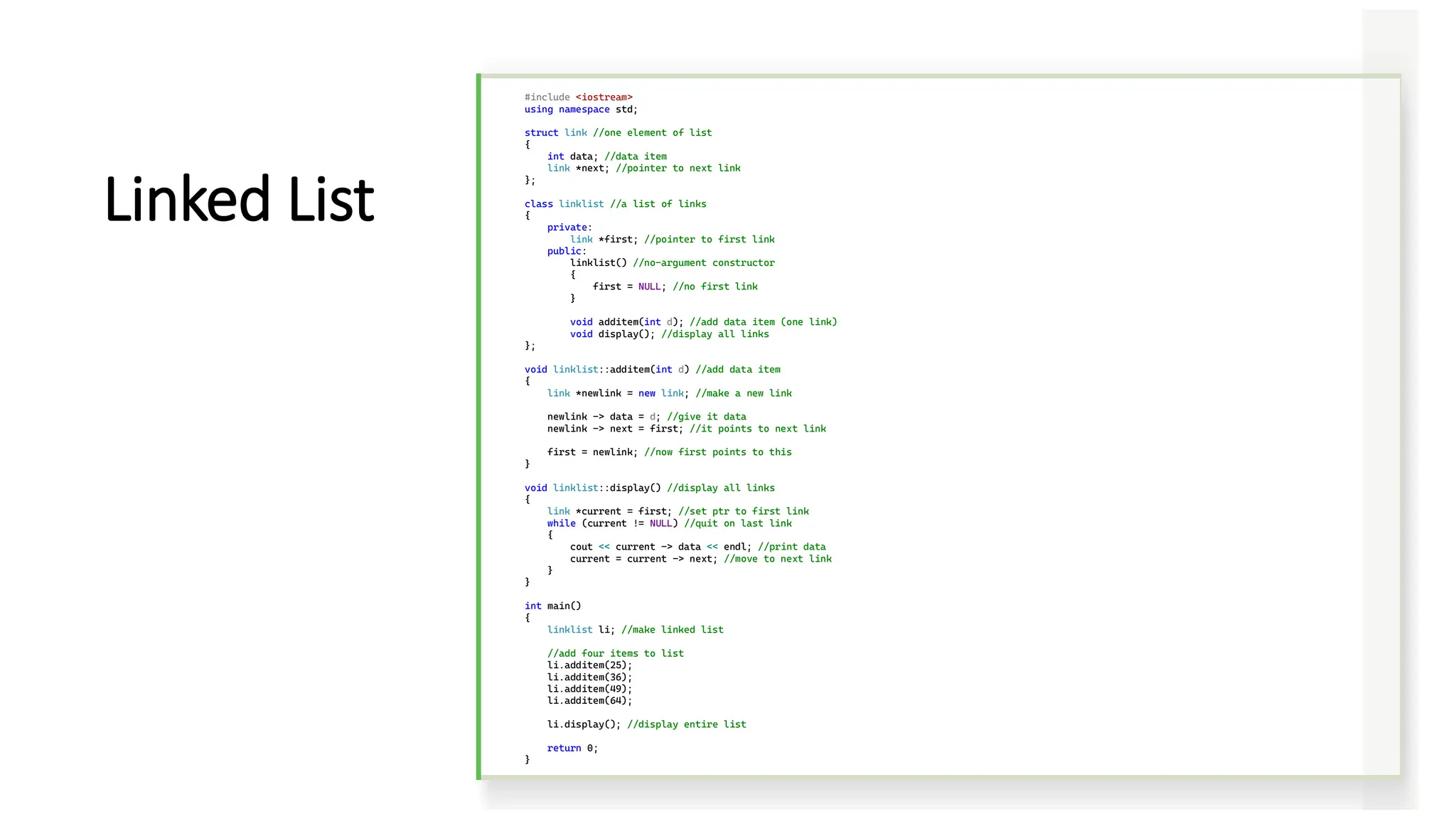
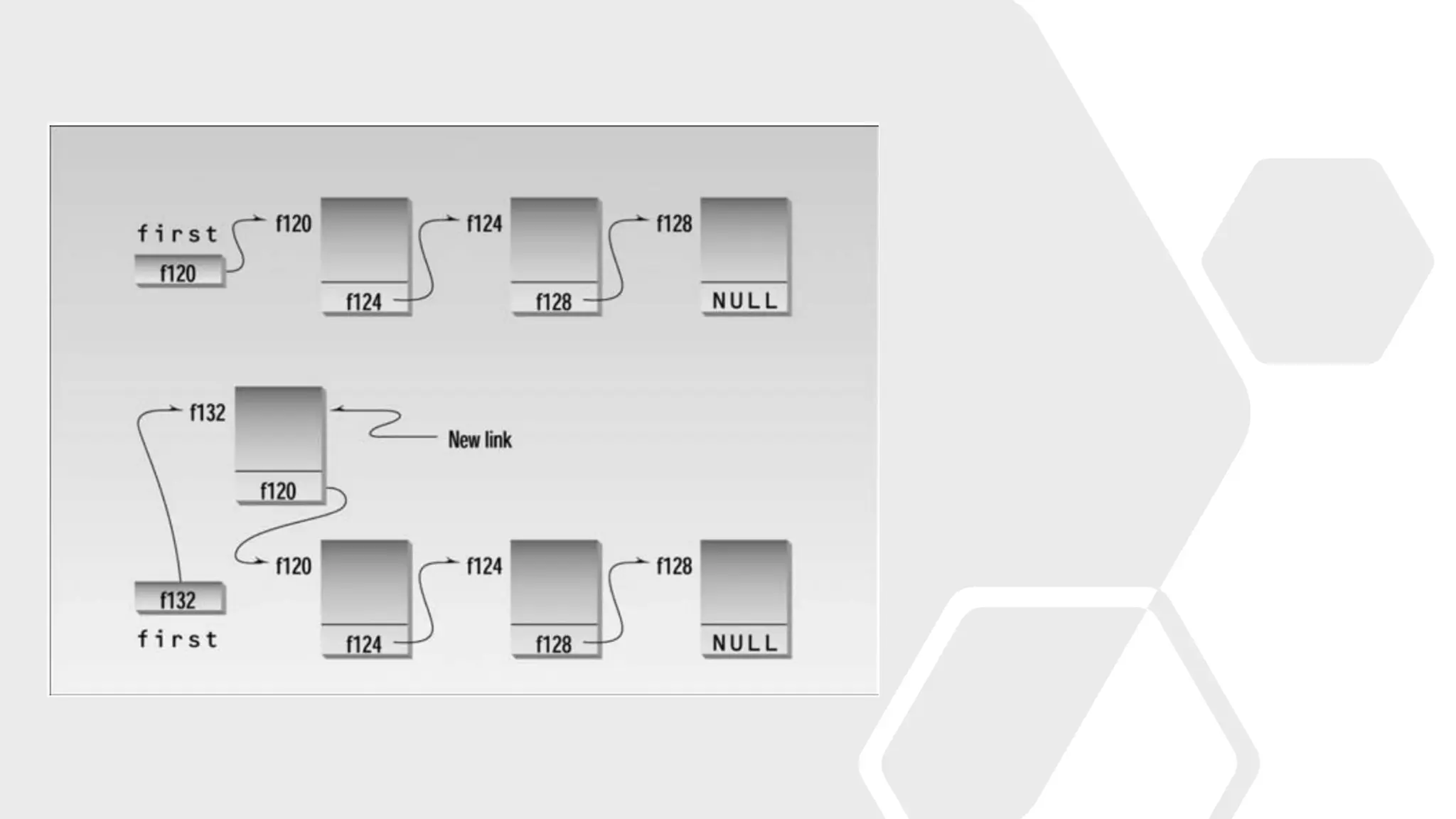

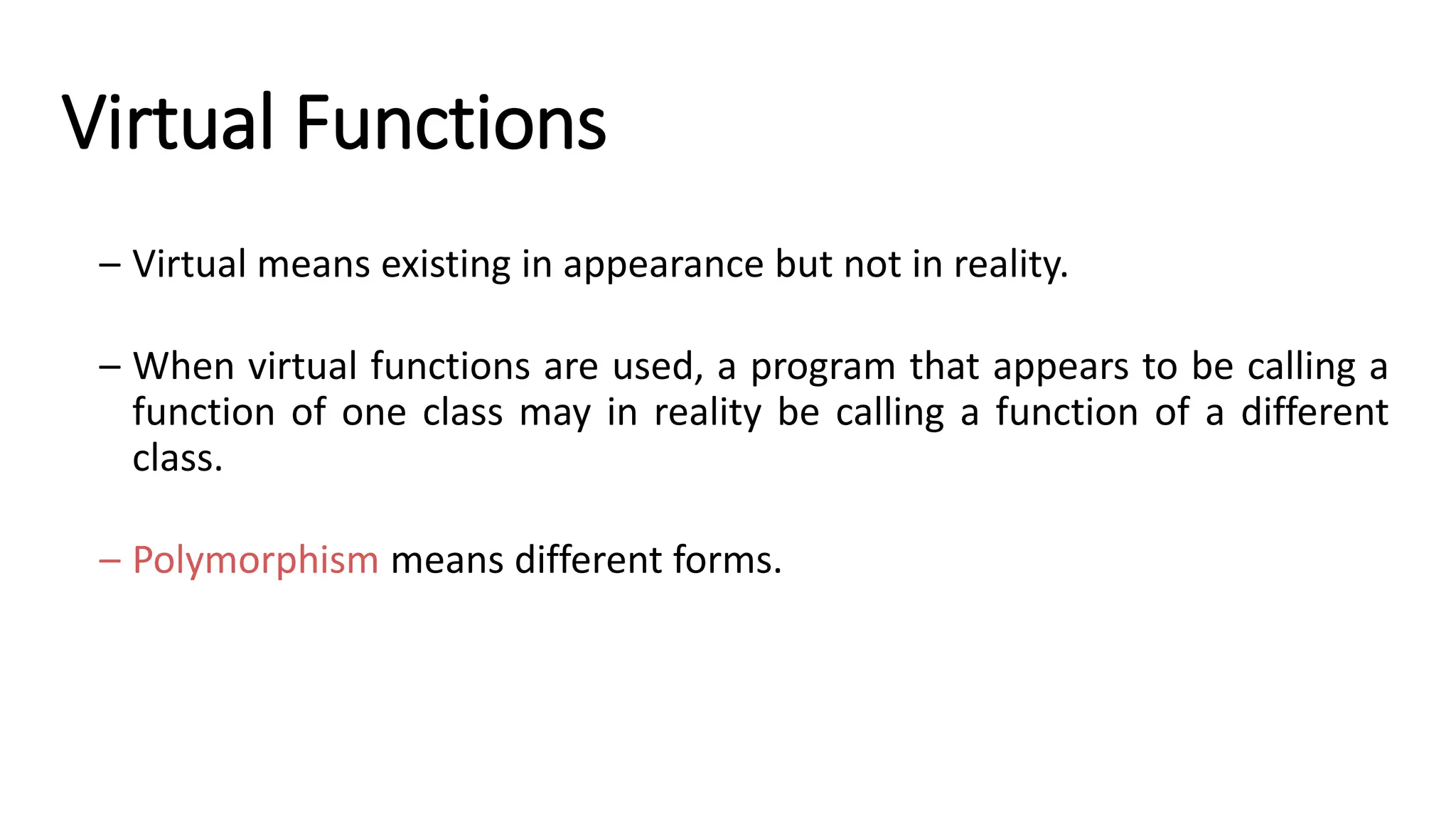
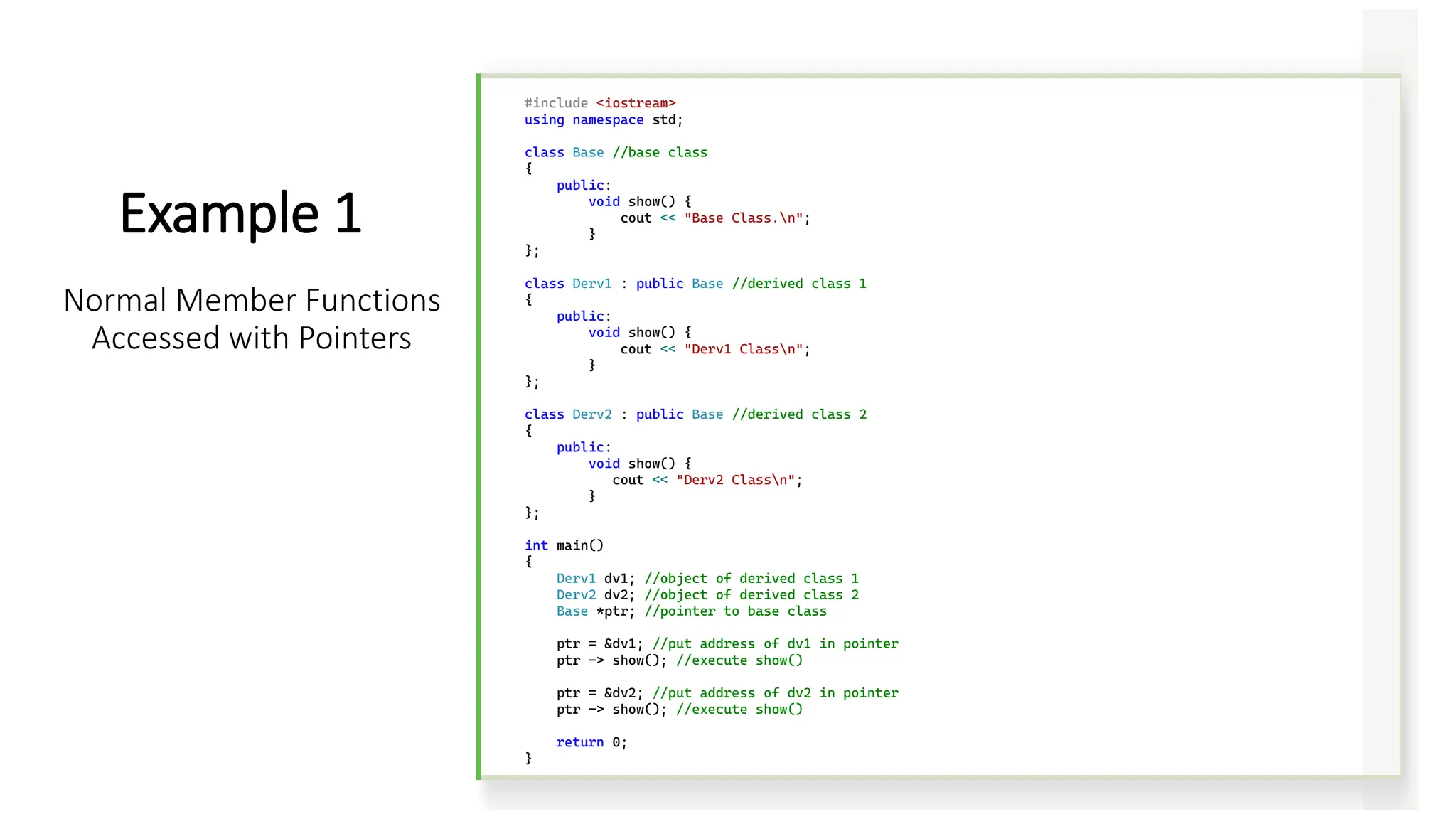
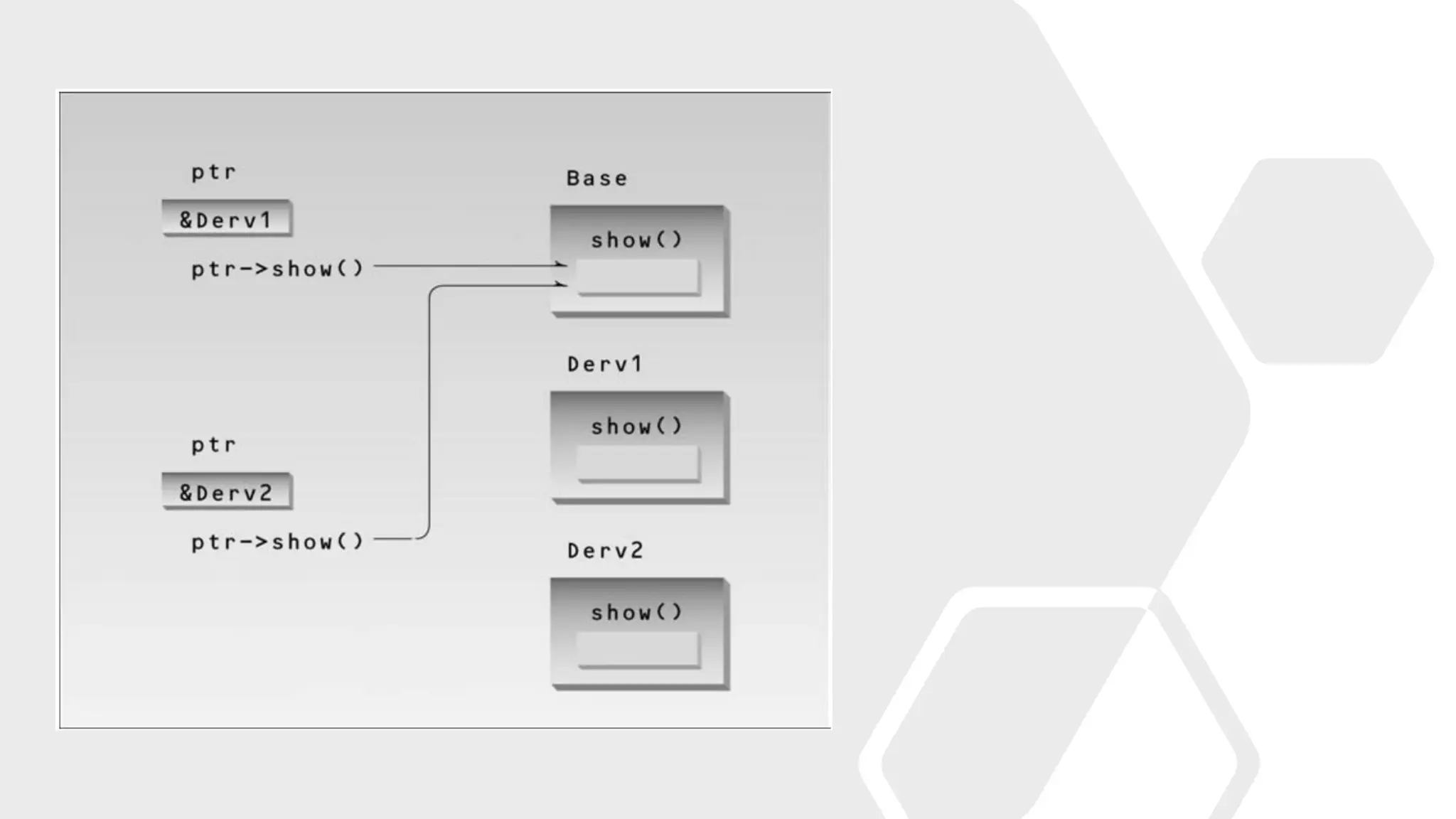
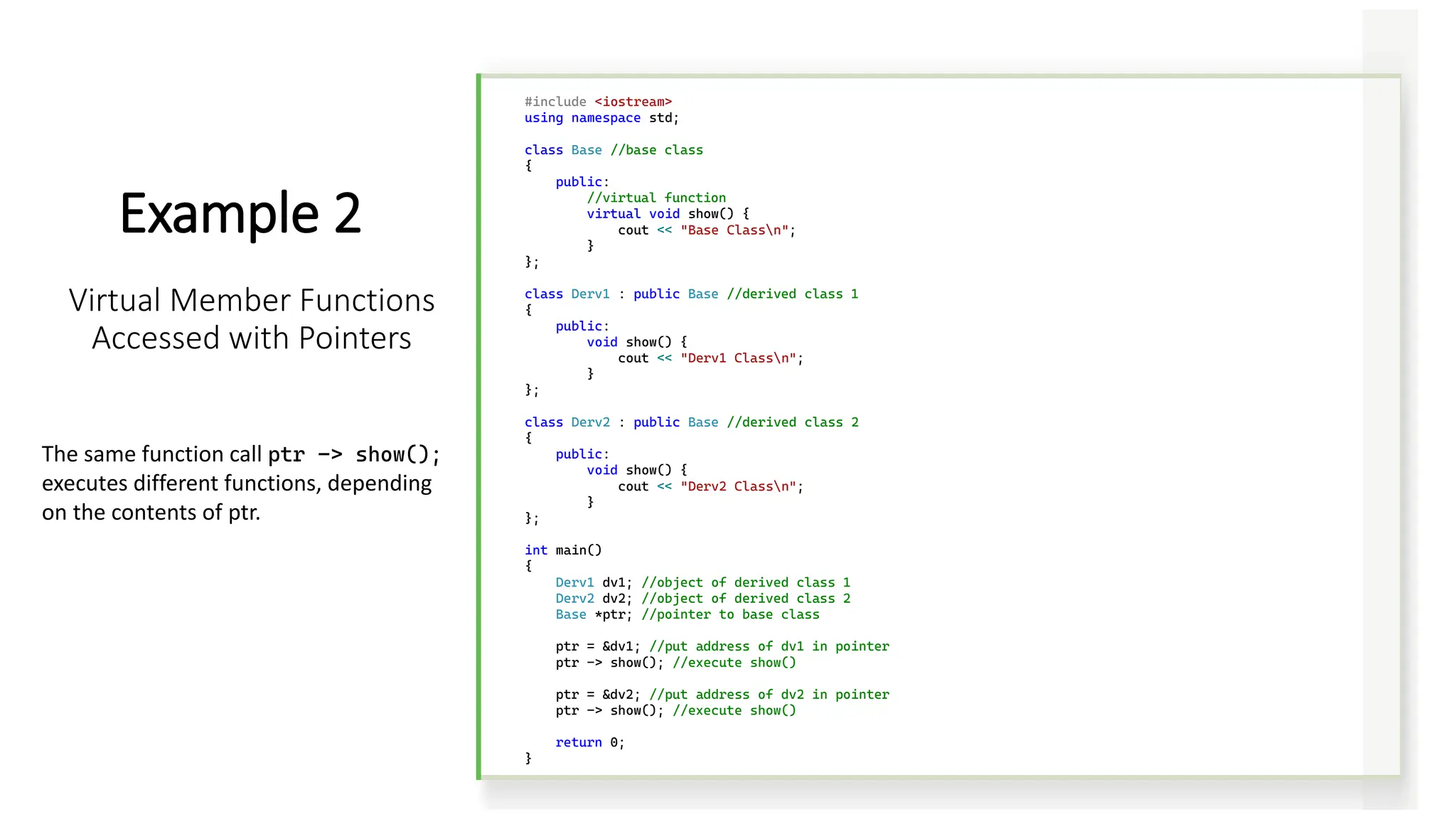
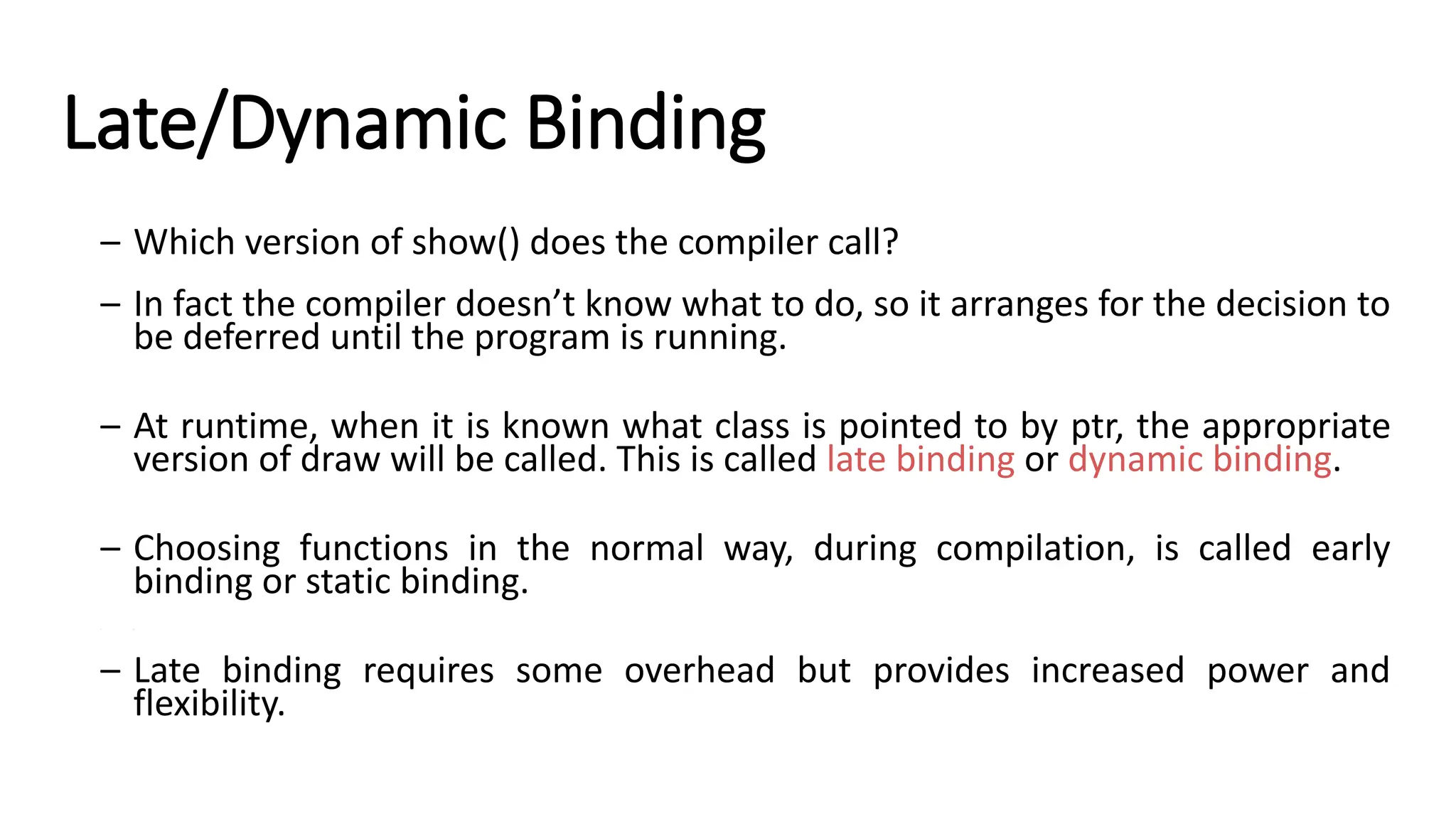
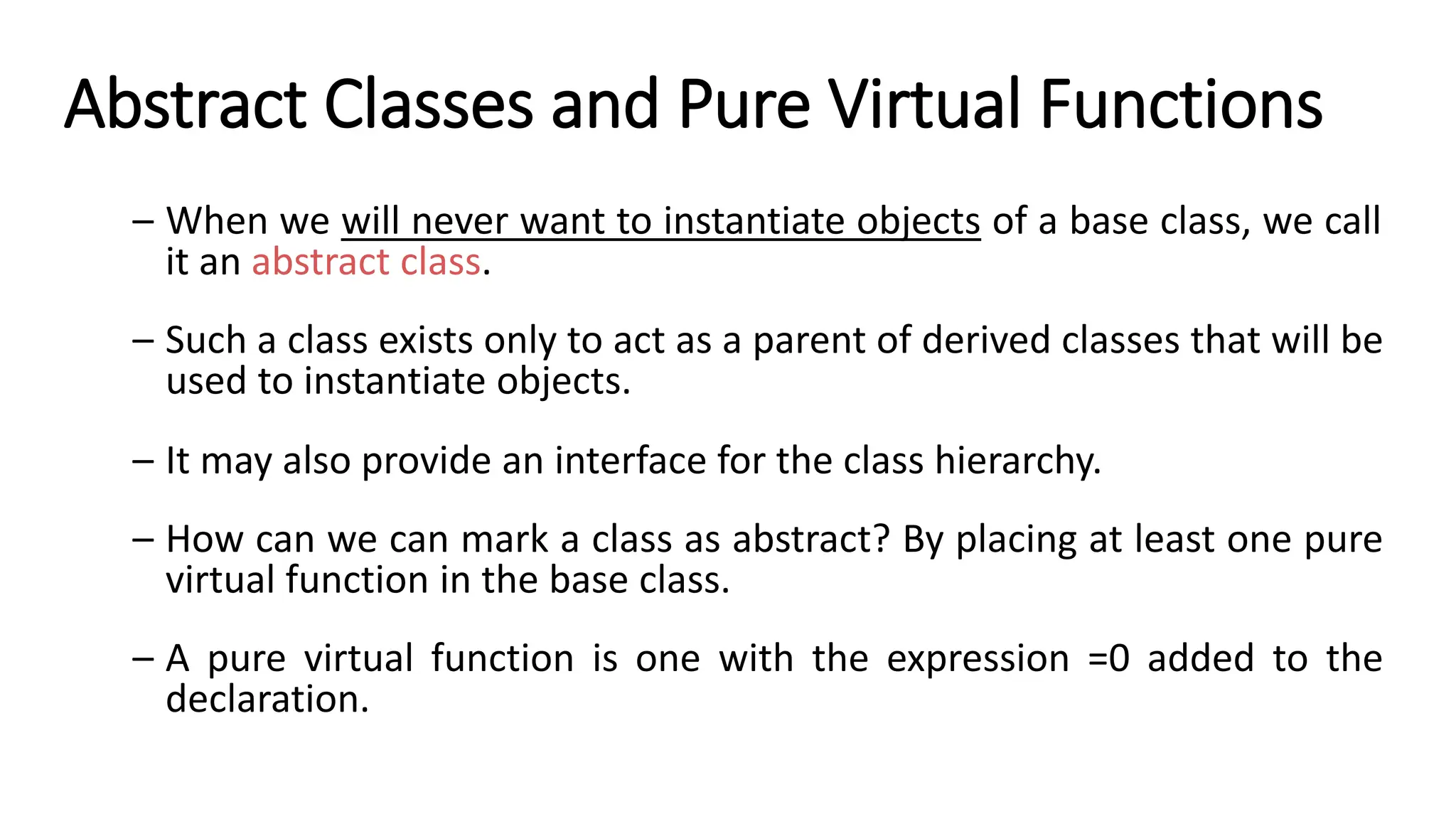
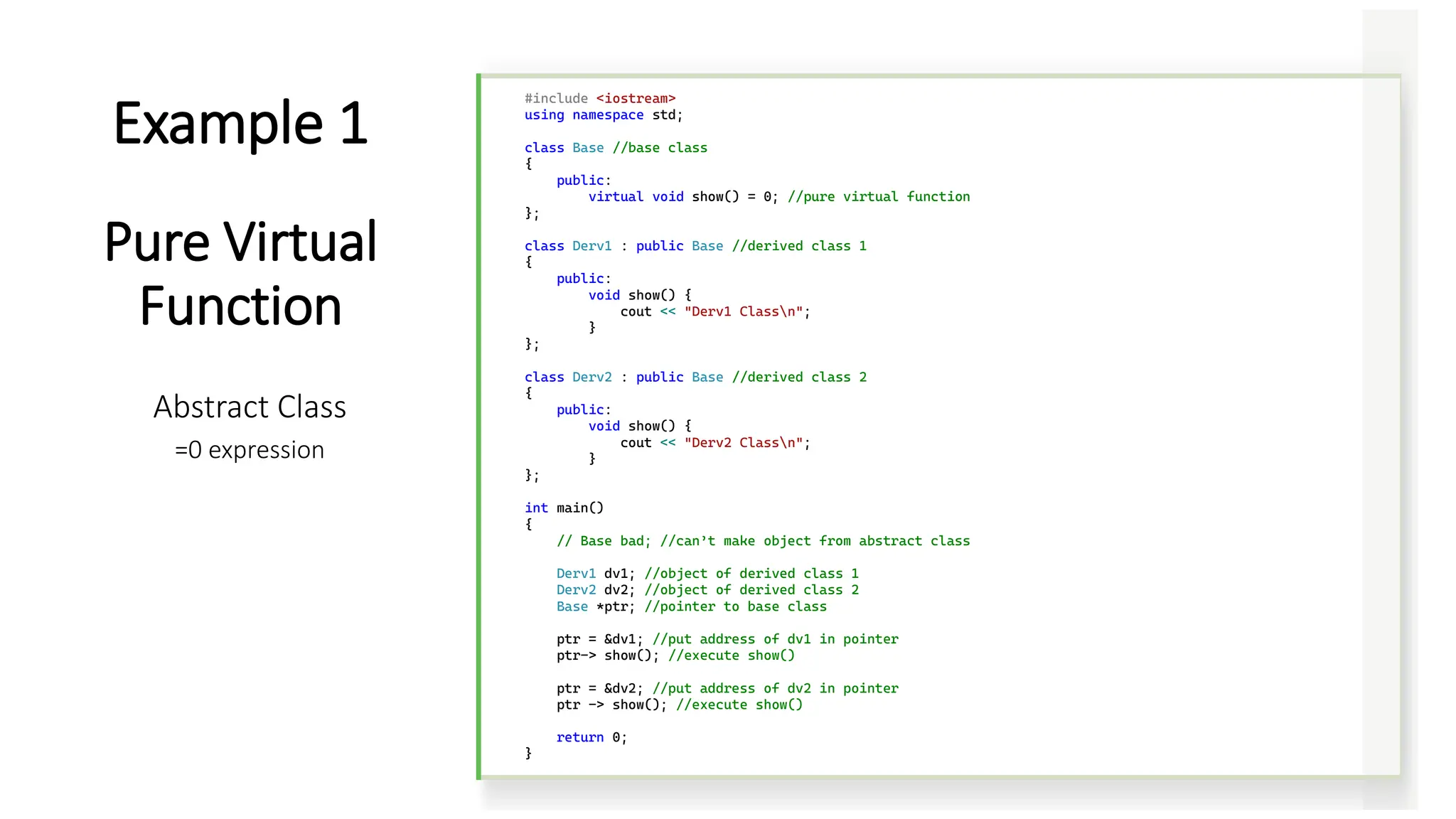
![#include <iostream> using namespace std; class person //person class { protected: char name[40]; public: void getName() { cout << " Enter name: "; cin >> name; } void putName() { cout << "Name: " << name << endl; } virtual void getData() = 0; //pure virtual func virtual bool isOutstanding() = 0; //pure virtual func }; class student : public person //student class { private: float gpa; //grade point average public: void getData() //get student data from user { person::getName(); cout << " Enter student's GPA: "; cin >> gpa; } bool isOutstanding() { return (gpa > 3.5) ? true : false; } }; class professor : public person //professor class { private: int numPubs; //number of papers published public: void getData() //get professor data from user { person::getName(); cout << " Enter number of professor's publications: "; cin >> numPubs; } bool isOutstanding() { return (numPubs > 100) ? true : false; } }; int main() { person *persPtr[100]; //array of pointers to persons int n = 0; //number of persons on list char choice; do { cout << "Enter student or professor (s/p): "; cin >> choice; if (choice == 's') //put new student persPtr[n] = new student; // in array else //put new professor persPtr[n] = new professor; // in array persPtr[n++] -> getData(); //get data for person cout << " Enter another (y/n)? "; //do another person? cin >> choice; } while (choice == 'y'); //cycle until not ‘y’ //print names of all persons, and say if outstanding for (int j = 0; j < n; j++) { persPtr[j] -> putName(); if (persPtr[j] -> isOutstanding()) cout << " This person is outstanding!n"; } return 0; } Example 2 Pure Virtual Function Abstract Class =0 expression](https://image.slidesharecdn.com/oopusingclanguage-lecture4-240918193530-82221c81/75/Object-Oriented-Programming-OOP-using-C-Lecture-4-17-2048.jpg)

